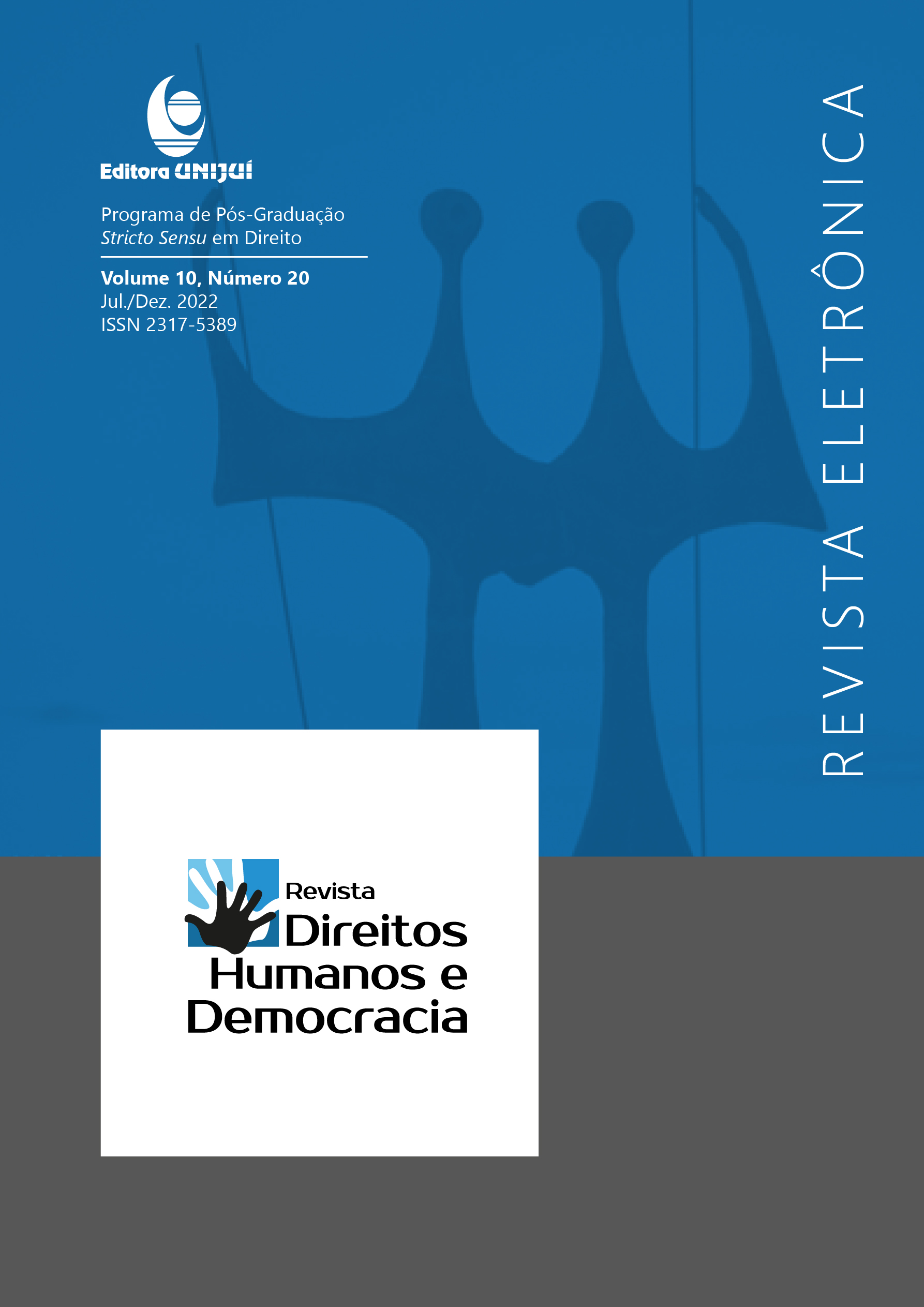Constitucionalismo abusivo e erosão democrática: Uma análise das proposições legislativas do presidente Bolsonaro no primeiro ano de seu mandato
DOI:
https://doi.org/10.21527/2317-5389.2022.20.12771Palavras-chave:
Legalismo autoritário, Presidencialismo brasileiro, direito constitucional, Erosão democráticaResumo
Diante de um contexto internacional de autoritarismo crescente e de democracias fragilizadas por ondas iliberais, a compreensão do fenômeno dentro do contexto brasileiro é importante para entender em que medida o projeto iliberal influenciou a atuação do Poder Executivo brasileiro no primeiro ano da gestão 2019-2022. Jair Bolsonaro, em diversas oportunidades, identificou-se como um outsider no que diz respeito às regras do jogo. Dessa forma, observando essa postura do presidente eleito, este artigo tem como objetivo analisar o primeiro ano da gestão Bolsonaro-Mourão no que diz respeito às propostas legislativas oriundas do Poder Executivo e em que medida elas flertam com o legalismo autoritário. A hipótese gira em torno do alto poder legislativo do chefe do Poder Executivo brasileiro, o que pode ser instrumento de transformação marcante na ordem jurídica, inovando o ordenamento jurídico. O objetivo foi analisar se essa força foi utilizada com intenções antiliberais de cunho autoritário pelo Poder Executivo no ano legislativo de 2019. A pesquisa centrou-se em quatro tipos de propostas legislativas do Poder Executivo, a saber: as Propostas de Emenda à Constituição (PECs), os Projetos de Lei Complementar (PLPs), as Medidas Provisórias (MPs) e os Projetos de Lei (PL). A escolha desse corpus se deu pelo papel significativo que esses tipos de propostas legislativas possuem em alterar a normatividade do sistema jurídico. A conclusão alcançada é de que o primeiro ano da gestão do presidente Bolsonaro não se utiliza de mecanismos explícitos de erosão constitucional, empregando, por seu turno, formas sutis de desestruturação da ordem democrática.
Downloads
Publicado
Como Citar
Edição
Seção
Licença
Copyright (c) 2022 Revista Direitos Humanos e Democracia

Este trabalho está licenciado sob uma licença Creative Commons Attribution 4.0 International License.
Ao publicar na Revista Direitos Humanos e Democracia, os autores concordam com os seguintes termos:
Os trabalhos seguem a licença Creative Commons Atribuição 4.0 Internacional (CC BY 4.0), que permite:
Compartilhar — copiar e redistribuir o material em qualquer meio ou formato;
Adaptar — remixar, transformar e criar a partir do material para qualquer fim, inclusive comercial.
Essas permissões são irrevogáveis, desde que respeitados os seguintes termos:
Atribuição — os autores devem ser devidamente creditados, com link para a licença e indicação de eventuais alterações realizadas.
Sem restrições adicionais — não podem ser aplicadas condições legais ou tecnológicas que restrinjam o uso permitido pela licença.
Avisos:
A licença não se aplica a elementos em domínio público ou cobertos por exceções legais.
A licença não garante todos os direitos necessários para usos específicos (ex.: direitos de imagem, privacidade ou morais).
A revista não se responsabiliza pelas opiniões expressas nos artigos, que são de exclusiva responsabilidade dos autores. O Editor, com o apoio do Comitê Editorial, reserva-se o direito de sugerir ou solicitar modificações quando necessário.
Somente serão aceitos artigos científicos originais, com resultados de pesquisas de interesse que não tenham sido publicados nem submetidos simultaneamente a outro periódico com o mesmo objetivo.
A menção a marcas comerciais ou produtos específicos destina-se apenas à identificação, sem qualquer vínculo promocional por parte dos autores ou da revista.
Contrato de Licença: Os autores mantém os direitos autorais sobre seu artigo, e concedem a Revista Direitos Humanos e Democracia o direito de primeira publicação.













